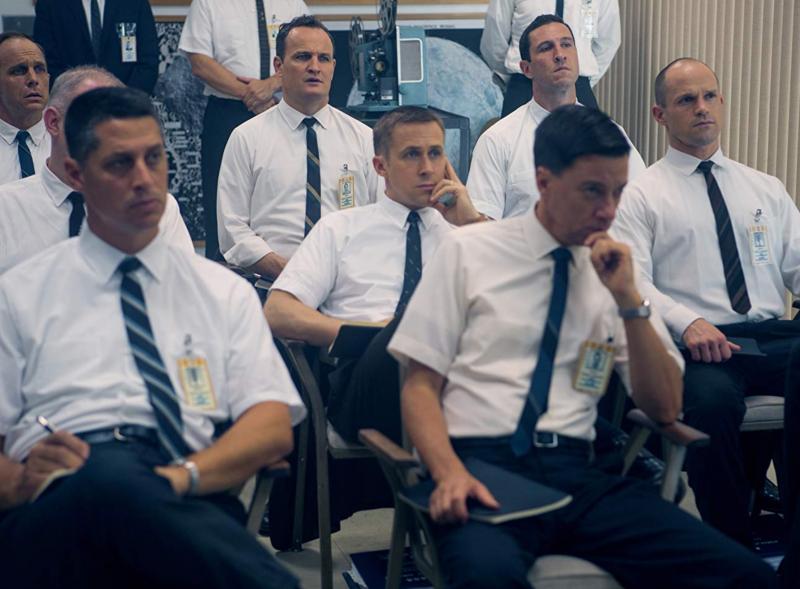There is a certain audaciousness to even considering a big-budget dramatization of our earliest days of space travel. Aside from the fact that we are in no short supply of riveting documentaries about the topic (“In the Shadow of the Moon,” the docu-series “When We Left Earth” and “For All Mankind” all exhaustively and thrillingly cover the space race), we also have quite a few exemplary dramas that have become classroom staples. “Apollo 13” and “The Right Stuff” are still just as riveting today as when they first came out.
Additionally, we are all aware of the outcome, as fellow moon lander Buzz Aldrin still emerges every now and then to pop a flat-earther in the jaw.
So, when Damien Chazelle, director of the Oscar-winning “La La Land,” decided to reteam with its star Ryan Gosling to take on Neil Armstrong’s journey, the idea seemed daunting at best. Chazelle worked with “Spotlight” writer Josh Singer to craft a tale that looks just as much inward as it does upward, focusing on Armstrong’s internal struggles, undeniable skills and resolution in the face of his possible demise.
We first join Armstrong (played by Gosling) mid-flight of an X-15 that leaves him literally bouncing atop Earth’s atmosphere, where he catches the first cosmic glimpse of his ultimate destination.
“First Man” does not concern itself with the more technical, wide-lens approach to the actual mission, instead placing us alongside Armstrong, giving viewers his perspective when he witnesses the extraordinary vistas to which he is ultimately exposed, as well as the terrifying and potentially deadly malfunctions that precede it.
Chazelle gives considerable time to other early stories, such as the heated rivalry between the dueling space programs in the U.S. and the U.S.S.R., where the astronauts receive reports of similar lunar intentions, as well as the Armstrong home itself and the strains his profession places upon the family.
Jan Armstrong (played by Claire Foy) is equally as resolute as Neil. Still reeling from the loss of a child to cancer, she must carry on caring for their two young sons and managing the household affairs, as well as dealing with the fact that each of Neil’s missions is one from which he might not return.
In one particularly powerful and amusing scene, Jan demands that Neil inform his sons his trip to the moon may very well be his last and answer all questions two young children may have when confronted with such news. Despite the focus on his personal life, “First Man” maneuvers from the more sentimental trappings of standard dramas, and when it does so during a climactic scene, it feels earned.
Jason Clarke, Ethan Embry and Lukas Haas all glimmer as Armstrong’s astronaut colleagues, but if you haven’t already have guessed it, the most colorful contribution comes from Corey Stoll as the driven, outspoken Buzz Aldrin.
The actual landing itself was shot using IMAX cameras, and the film’s scope widens to an awe-inspiring perspective, even as we are still viewing as though we were fellow astronauts ourselves. Like “Gravity” before it, those scenes alone are worth seeing in as large a format as possible for their sheer emotional resonance.
It's a shame that there was a small beef prior to the film's release that there was not enough “'murica!” flag-waving included, because “First Man” is not that type of film. Instead, it's an effective human drama that demonstrates the potential for greatness in anyone, and, like Armstrong himself, demonstrates a quiet strength that doesn't need to beat its chest to prove its worth.
















































